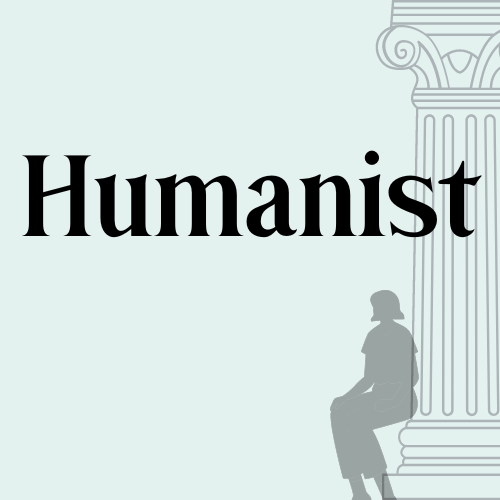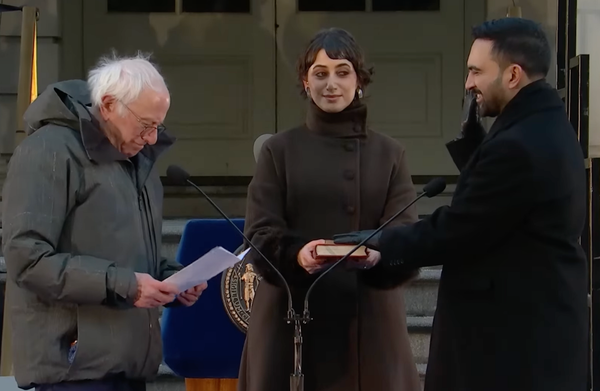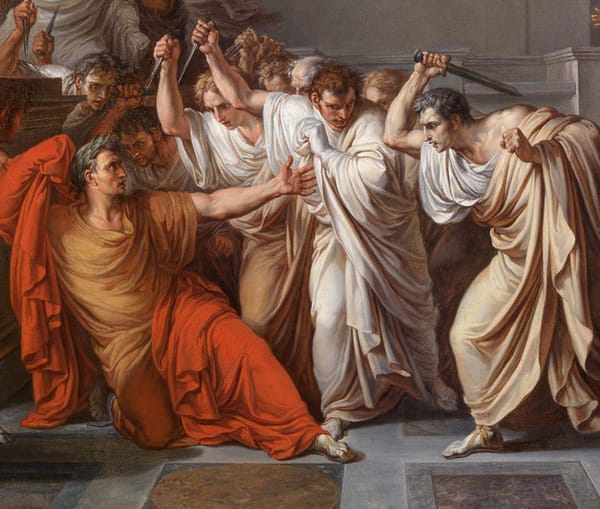Peer workshops: painful or productive?
Reading a peer's work triggers many students to recognize improvements that they could make in their own. In fact, giving feedback might actually support more learning and growth than getting feedback.

I worked as a peer tutor in my university's writing center as an undergraduate, and enjoyed the process of refining a paper together – and learned a lot myself. In this spirit, I had students in my seminars do peer workshops on their papers. They'd share an outline, thesis statement, or introduction, or summarize their paper, to a partner, and the partner would provide feedback. This was a way of getting students to start thinking through their papers early on in the process, instead of throwing something together at the last minute. It was also a way to introduce some formative feedback into the writing process to improve the final product – more feedback than I could have given students all on my own.
According to research studies, student feelings about peer evaluation are pretty polarized. Many students – the majority – seem to like collaborative work, and a majority of students benefit from it, both in terms of improving the reviewed assignment and in terms of strengthening their skills in metacognition and self-regulation in revising their work in the future. Reading a peer's work triggers many students to recognize improvements that they could make in their own. They might recommend that their partner signpost an essay's structure and organization to make it easier to follow, or articulate their thesis statement more forcefully, and then think to themselves: "maybe I should do that too." In fact, giving feedback might actually support more learning and growth than getting feedback.
Some students, however, really hate peer work. Tracie Addy, Derek Dube, and Khadijah Mitchell, former colleagues at Lafayette College, published Enhancing Inclusive Instruction just this year, gathering student reflections on inclusive teaching. They include several negative testimonials about peer evaluation:
I do not want to peer review, okay. Some kids do not know how to write and I don’t want them criticizing my work.
Having us work with unreal, abrupt, and disrespectful students not seeing there is toxic energy.
These students were expressing a minority view, but an important one – who among us has not thought or yelled this about academic peer reviewers? Students who were older than the average undergraduate, or who felt otherwise marginalized, also often disliked peer work (with students who were not, in some sense, their peers).
These negative comments made me rethink one part of my practice in organizing peer workshops: the way I paired students up. I tried to pair students who were working on similar topics, but I also tried to pair stronger writers with those who needed more support, which I thought would level the playing field. But when I read the student comments above, I thought maybe I'd gone about this the wrong way. Maybe the stronger writers in those pairs didn't get as much useful feedback as a result. Maybe it would be better to put stronger writers together to learn from each other and nerd out about writing, or put Classics majors together to nerd out about the subject, while other students who don't want to nerd out could support each other in working on clarity, organization, and argumentation. Sharing writing is a space of vulnerability, so maybe I should have made pairs based on who I thought would be comfortable with each other, rather than trying to get strangers to build a new connection. I'm not sure what one should do with disrespectful or toxic students (but I'll get to the subject of ground rules momentarily). Unsurprisingly, Addie et al. note that most students prefer to choose their own partners for this sort of thing, and maybe that's for the best – but what to do with the students who don't have relationships with their peers and don't have a partner ready to hand? No one likes the "picked last for the kickball team in gym class" feeling. I'm not sure what the right answer is, but it's clear that knowing your students' interests, writing skills, and vibes is a great help to successful setup here (this post on surveying your students might help get there).
It's important to differentiate a few related but distinct practices here:
- peer review, where students provide feedback to each other on their work;
- peer assessment, where students provide feedback as well as grades to each other, in addition to or in place of a grade from the instructor; and
- peer instruction, where students discuss their answers to a quiz question and have the opportunity to change their answers based on the discussion.
A lot of the data on student hostility comes from studies on peer assessment, especially when the instructor isn't also providing a grade. Although Nancy Falchikov and other researchers have shown that peer students usually provide the same grade that an instructor would, students tend not to believe that this is the case (perhaps on the misguided assumption that we, their instructors, have been extensively trained in assessment?).
Peer review and peer assessment may be anonymous or not, and may take place in person or online. Canvas and Blackboard have a peer review tool built in, and I assume that other LMSs like Moodle and Brightspace do too. Anonymity removes the interpersonal tension from the activity, to some extent, but makes ground rules even more important.
Setup: Learning Goals & Ground Rules
To set up a peer review activity more effectively, I would want to identify clear learning goals. I might tell my students that research on peer review suggests that this activity will help them to:
- improve their writing by running it by a second person, which is generally the best way to see if you're communicating effectively;
- articulate the strengths of someone else's paper and identify areas for improvement, which will also help you write better yourself;
- work together to make each of your papers better, as defined by the evaluation criteria on the rubric (which, yes, means getting better grades);
- broaden your perspective by getting to know a peer's way of thinking, reading, and writing; and
- practice giving constructive feedback, a skill needed in most professional settings.
We also need some ground rules and a common definition of "constructive feedback." Christian Schunn at Pitt has a tutorial video about this with (horrifying) illustrative examples that students could watch.
You could also have students reflect or discuss in pairs first: what ground rules or community agreements would they like to put in place for this activity?
Some examples, from EL Education:
- Be Kind: Always treat others with dignity and respect. This means we never use words that are hurtful, including sarcasm.
- Be Specific: Focus on particular strengths and weaknesses, rather than making general comments like "It's good" or "I like it." Provide insight into why it is good or what, specifically, you like about it.
- Be Helpful: The goal is to positively contribute to the individual or the group, not to simply be heard. Echoing the thoughts of others or cleverly pointing out details that are irrelevant wastes time.
Or these, from Marcus Luther's post on Edutopia, or his Substack post on "The Broken Copier" (both excellent):
- Feedback should be precise, not general (or else it’s not helpful!)
- Feedback should be constructive, not destructive (or else it does more harm than good)
- Feedback should be affirming, when possible
Luther also includes community norms:
- Grace in that they are reading each other’s drafts and that there is a collective norm of work still needing to be done (as opposed to the anxiety that comes with someone reading your final submission)
- Purpose in that with the final submission still ahead, this workshop can help the writing improve meaningfully still (as opposed to reading each other’s writing after the score is finalized)
- Generosity: Assuming 100 percent in your peers and giving 100 percent as a result in terms of investment and feedback.
- Curiosity: Entering into the space with a willingness to learn from the writing and feedback of those around you.
- Growth: Prioritizing how you can grow, not only in your own writing but also in receiving and providing feedback.
- Perspective: Valuing and engaging with how your own way of seeing things may be different than others’.
Workshop prompts
My peer review workshops in class would have worked better for everyone if I'd structured them more formally, and provided specific prompts. Some basic protocols for this are "Praise-Question-Suggestion" or "Keep-Add-Improve" from EL Education, or "Feedback Carousel" from CLEE.
In class, at an early stage in writing, I might have students exchange outlines or introductions, or just tell each other about their papers. The person who is presenting their own work might start out by describing:
- the main point of their essay;
- the sections or structure of their essay;
- what's interesting to them about this topic, and what (if anything) is still unclear, confusing, challenging, or off-putting about it;
- any places in the paper that they think need work; and
- what materials from the course or sources they're using to support their argument.
And then the respondent would:
- Repeat back the main point and structure of the essay, as they've understood it;
- Explain why they agree or disagree (respectfully) with the argument;
- Describe what's interesting to them about the topic, or what (if anything) seems unclear or challenging;
- Ask questions about the topic, trying to narrow it down to be more specific; and
- Suggest any other readings or ideas that might connect to the topic, and explain how; and/or suggest more searches to do in the library catalog, Google Scholar, JSTOR, etc.
The author might then respond with follow-up questions or points of respectful disagreement or differences of opinion, which the two could discuss.
I would do something similar if I had students exchange papers (in person or online, anonymously or not). I might even schedule this after the workshop above, keeping students in the same pairs as long as they worked well together. I would provide a set of prompts for the readers, such as:
- Organization: How would you describe the topic and main argument of this essay? How would you outline its main points and structure? Was it easy to follow the structure? Why or why not?
- Ideas: What is new to you in this essay? (An idea that you hadn't thought of before, a new way of describing or analyzing something, a new connection, etc.)
- Strengths: What is working well in this essay? (Be specific.)
- Argument: Do you agree with the argument in this essay? Why or why not? (Please respect the author's perspective and their right to their opinion.) Are there any places in the argument where more evidence would make it stronger or more persuasive? If so, where?
- Specificity: Is the scope of the paper focused and specific? If not, how might you narrow it down? What ideas, arguments, or sections are worth exploring in more depth?
- Clarity: Are any of the points in the essay unclear or confusing to you as a reader? Anything you had to read more than once to understand, or any places where more explanation might help? If so, please identify the relevant paragraph(s).
- Editing: Are there any factual, spelling, or grammatical errors that you noticed? Is there any vague or general language in the introduction that the author could drop without making the essay hard to read?
- Recommendations: Are there any other facts, texts, or ideas that came to your mind that could connect to this topic and might be worth adding?
- Citations: Are there any ideas, terms, or quotations that have not been cited to show where they came from? If so, where? (If you're not sure, mark it anyway)
You could also give students the rubric you'll use to grade the assignment, and ask them to use the rubric to focus their comments. Things like unattributed quotations, disorienting organization, or overly vague introductory paragraphs are such common problems that I would almost certainly include them on a rubric – but it's better for everyone if a peer reader catches it early in the writing process (and thus learns to correct that problem in their own writing without an external reader, ideally).
A thought: It would probably be prudent to give students the option of requesting a second round of review, either from a peer or from the instructor, in case the feedback they get is not helpful or not constructive.
Any thoughts on how to pair students, or how you do peer workshops? Please share!
Further reading
Marcus Luther. Mar 19, 2023."The Power of Peer Workshopping." The Broken Copier (Substack).
"Planning and Guiding In-Class Peer Review" from Wash U's Center for Teaching and Learning.





